Are Cheez Its Healthy: A Detailed Analysis. Cheez Its are a popular snack enjoyed by many, but are they truly healthy? Let’s delve into the nutritional aspects of Cheez Its to uncover the truth.
Nutritional Analysis of Cheez Its
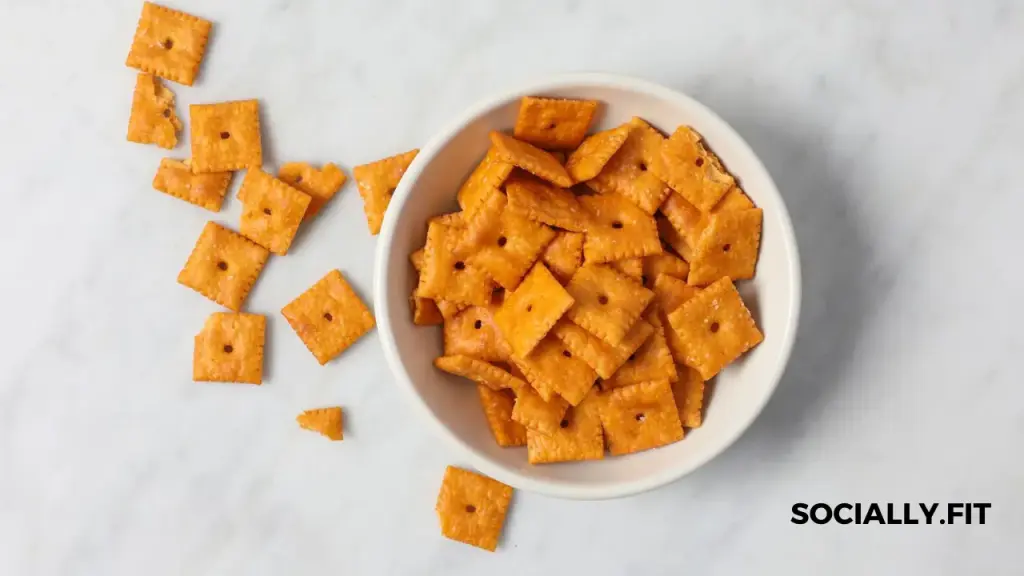
When it comes to understanding the nutritional profile of Cheez Its, it’s essential to examine the ingredients list and the specific nutrients they provide. Here are some tips for analyzing the nutritional aspects of Cheez Its:
- Ingredients List Examination: Start by carefully reviewing the ingredients list on the packaging of Cheez Its. Look for key components such as enriched flour, vegetable oil, cheese, and any additives or preservatives.
- Focus on Macronutrients: Pay attention to the macronutrient content of Cheez Its, including carbohydrates, fats, and proteins. Evaluate the balance of these macronutrients and their contribution to the overall calorie content of the snack.
- Check for Enriched Ingredients: Note if Cheez Its contain enriched flour or other fortified ingredients. Enriched flour is often used in processed snacks to add nutrients lost during processing, but it may also contribute to excess refined carbohydrates.
- Assess Sodium Levels: Sodium content is a critical aspect to consider, especially for those watching their sodium intake. Cheez Its can be high in sodium, so be mindful of the recommended daily limits and how a serving fits into your overall sodium intake.
- Evaluate Saturated Fat Content: Saturated fat is another nutrient of concern in Cheez Its. Excessive saturated fat consumption can negatively impact heart health, so assess the saturated fat content per serving and consider it in the context of your daily fat intake goals.
Sodium and Saturated Fat Content in Cheez Its
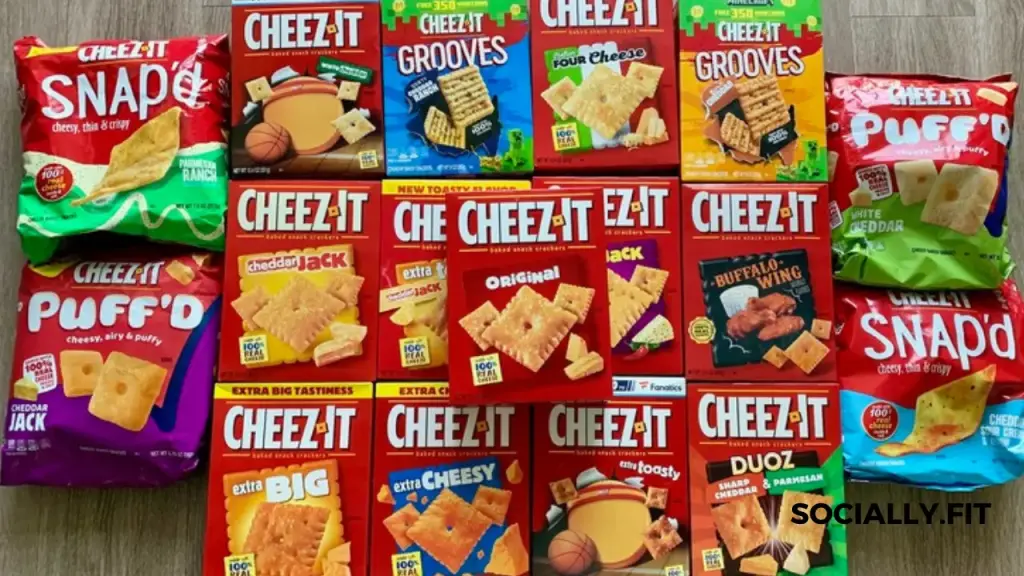
Sodium and saturated fat are two key nutritional components to consider when evaluating the healthfulness of Cheez Its. Let’s delve into the implications of sodium and saturated fat content in this popular snack:
Sodium Content:
- High Sodium Levels: Cheez Its often contain significant amounts of sodium per serving, contributing to daily sodium intake.
- Impact on Health: Excessive sodium consumption can lead to high blood pressure, heart disease, and other cardiovascular issues.
- Watch Portion Sizes: Be mindful of portion sizes and the sodium content per serving, as it can quickly add up if consumed in excess.
- Dietary Recommendations: Health authorities recommend limiting sodium intake to no more than 2,300 milligrams per day for most adults.
Saturated Fat Content:
- Presence in Cheez Its: Cheez Its may also contain notable levels of saturated fat, which can contribute to total daily fat intake.
- Effects on Health: High intake of saturated fat is associated with an increased risk of heart disease and elevated cholesterol levels.
- Moderation is Key: While some saturated fat is necessary for a balanced diet, moderation is essential to prevent adverse health effects.
- Dietary Guidelines: Dietary guidelines recommend limiting saturated fat intake to less than 10% of total daily calories.
In conclusion, while Cheez Its can be a tasty snack option, it’s important to be mindful of their sodium and saturated fat content. Consuming them in moderation and being aware of portion sizes can help maintain a balanced diet and minimize the risk of health issues associated with excessive sodium and saturated fat intake.
Are Cheez Its Healthy
Portion Control and Moderation with Cheez Its
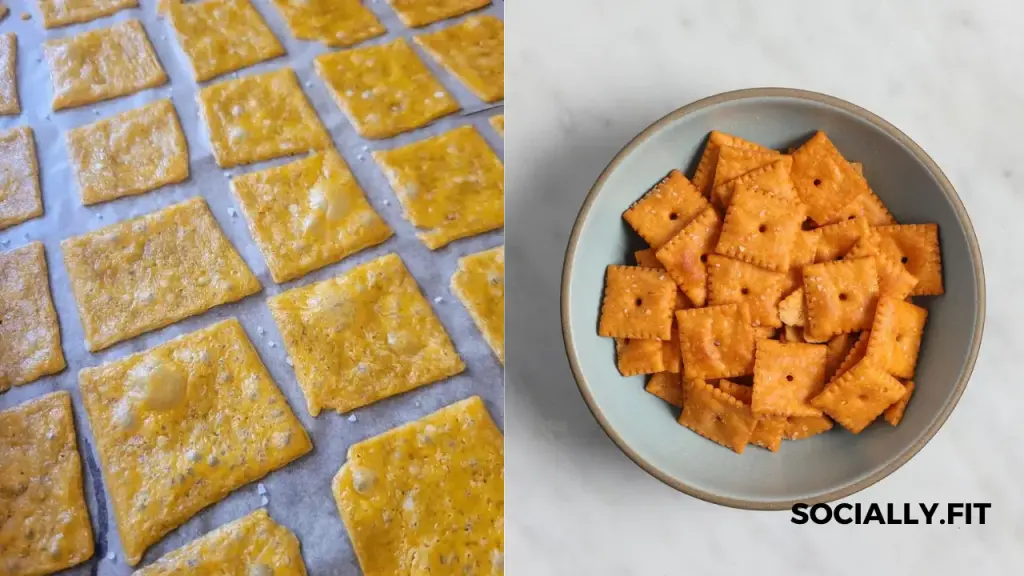
Portion control and moderation are key principles to keep in mind when enjoying Cheez Its as a snack. Here’s why:
Importance of Portion Control:
- Calorie Awareness: Being mindful of portion sizes helps regulate calorie intake, preventing overconsumption and potential weight gain.
- Satisfying Hunger: Eating appropriate portion sizes of Cheez Its allows you to satisfy cravings without feeling deprived or overly full.
- Preventing Overindulgence: Limiting portion sizes reduces the risk of overindulging in Cheez Its, which can lead to excessive calorie and nutrient intake.
Strategies for Moderation:
- Use Smaller Servings: Instead of eating straight from the box, portion out a serving size of Cheez Its into a separate bowl or container to prevent mindless snacking.
- Mindful Eating: Take the time to savor each bite of Cheez Its, focusing on the taste, texture, and enjoyment of the snack. This can help you feel more satisfied with a smaller portion.
- Alternate with Healthier Options: Incorporate Cheez Its into your diet alongside healthier snack options like fruits, vegetables, or nuts to balance out your overall nutrient intake.
- Plan Ahead: Determine in advance how many Cheez Its you will allow yourself to eat, and stick to that portion size to avoid overeating.
Benefits of Moderation:
- Balanced Diet: Enjoying Cheez Its in moderation allows you to indulge in your favorite snacks while still maintaining a balanced diet rich in nutrients.
- Sustainable Habits: Practicing portion control and moderation with Cheez Its promotes long-term sustainability in your eating habits, preventing feelings of guilt or restriction.
- Improved Health: By managing portion sizes and moderating Cheez Its intake, you can support overall health and well-being while still enjoying your favorite snacks.
In summary, practicing portion control and moderation with Cheez Its allows you to enjoy this popular snack while maintaining a balanced diet and supporting overall health and wellness. By being mindful of portion sizes and incorporating Cheez Its into a balanced eating plan, you can indulge in your cravings without sacrificing your health goals.
Are Cheez Its Healthy
Health Impact of Overconsumption of Cheez Its
Let’s delve into the health impacts associated with excessive consumption of this popular snack, Cheez Its. It can have various implications for your health, ranging from nutritional imbalances to potential health risks.
Nutritional Imbalances:
- Excess Calories: Overindulging in Cheez Its can lead to an intake of excess calories, contributing to weight gain over time.
- Nutrient Deficiencies: Consuming large quantities of Cheez Its may result in an imbalance of nutrients, as they are often high in sodium, saturated fat, and refined carbohydrates while lacking essential vitamins and minerals.
Potential Health Risks:
- Increased Risk of Chronic Diseases: Regularly consuming high-calorie, nutrient-poor snacks like Cheez Its can elevate the risk of chronic diseases such as obesity, heart disease, and type 2 diabetes.
- Elevated Blood Pressure: The high sodium content in Cheez Its can lead to elevated blood pressure levels, increasing the risk of hypertension and cardiovascular issues.
- Negative Impact on Cholesterol Levels: The saturated fat content in Cheez Its can raise LDL (bad) cholesterol levels, further contributing to heart health concerns.
Psychological Effects:
- Guilt and Shame: Overindulging in Cheez Its may lead to feelings of guilt or shame, especially if it results in breaking dietary goals or feeling out of control with eating habits.
- Emotional Eating Patterns: Regularly turning to Cheez Its for comfort or stress relief can reinforce unhealthy emotional eating patterns, impacting overall mental well-being.
Strategies for Moderation:
- Portion Control: Limiting portion sizes of Cheez Its helps prevent overconsumption and promotes mindful eating habits.
- Balance and Variety: Incorporating Cheez Its into a balanced diet alongside nutritious foods ensures a diverse nutrient intake and reduces the risk of overreliance on unhealthy snacks.
- Mindful Eating Practices: Paying attention to hunger and fullness cues while enjoying Cheez Its helps prevent mindless snacking and encourages a more conscious approach to eating.
While Cheez Its can be a tasty and convenient snack option, overconsumption can lead to various health risks and nutritional imbalances. By practicing moderation, being mindful of portion sizes, and balancing Cheez Its with nutritious foods, you can enjoy them as part of a healthy diet while minimizing the potential negative impacts on your health.

Are Cheez Its Healthy
Comparing Nutritional Value of Cheez Its to Other Snack Options
To make informed decisions about snack choices, it’s essential to compare the nutritional value of Cheez Its with other popular snack options. Let’s examine the nutritional content of Cheez Its alongside two alternative snacks: pretzels and air-popped popcorn.
| Nutrient | Cheez Its (per 1 oz serving) | Pretzels (per 1 oz serving) | Air-Popped Popcorn (per 1 oz serving) |
|---|---|---|---|
| Calories | 150 | 110 | 30 |
| Total Fat (g) | 8 | 1 | 0.4 |
| Saturated Fat (g) | 2.5 | 0 | 0 |
| Sodium (mg) | 230 | 400 | 1 |
| Carbohydrates (g) | 17 | 22 | 6 |
| Dietary Fiber (g) | 0 | 1 | 1 |
| Sugars (g) | 0 | 1 | 0 |
| Protein (g) | 3 | 3 | 3 |
Key Observations:
- Calories: Cheez Its have the highest calorie content per serving compared to pretzels and air-popped popcorn.
- Total Fat: Cheez Its contain the highest amount of total fat, with pretzels having the lowest fat content.
- Saturated Fat: Cheez Its also have the highest saturated fat content per serving, while pretzels and air-popped popcorn contain minimal saturated fat.
- Sodium: Cheez Its contain a moderate amount of sodium, but pretzels have a higher sodium content per serving.
- Carbohydrates: Pretzels have the highest carbohydrate content, followed by Cheez Its and air-popped popcorn.
- Dietary Fiber: Both pretzels and air-popped popcorn contain dietary fiber, while Cheez Its have none.
- Protein: All three snacks provide a similar amount of protein per serving.
In summary, while Cheez Its offer a satisfying crunch and cheesy flavor, they tend to be higher in calories, total fat, saturated fat, and sodium compared to alternatives like pretzels and air-popped popcorn. When choosing snacks, consider your nutritional needs and opt for options that align with your health goals.
Are Cheez Its Healthy
Healthy Snack Alternatives to Cheez Its
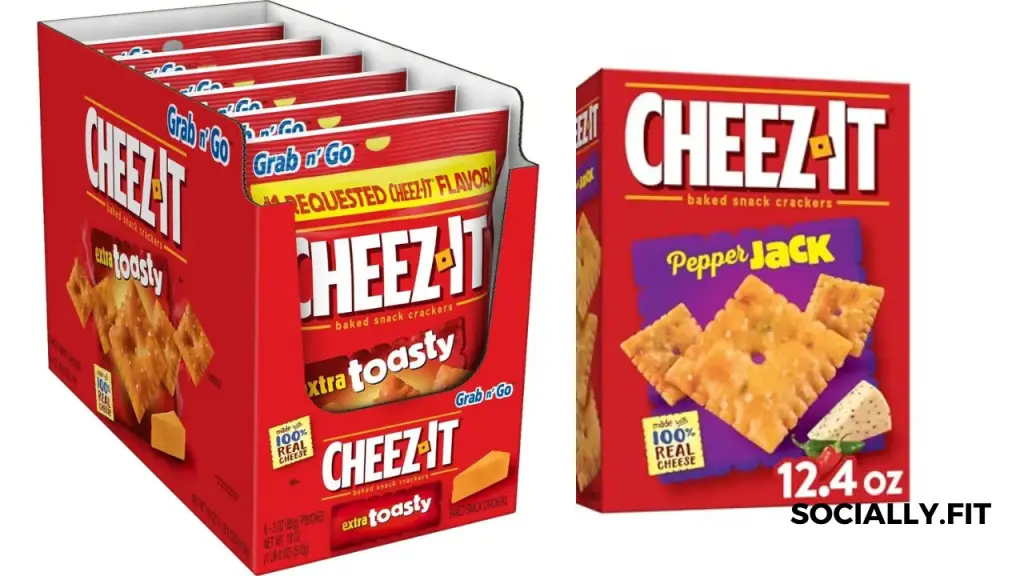
While Cheez Its can be a tempting snack option, there are plenty of healthier alternatives available that offer satisfying flavors and nutritional benefits. Here are some nutritious snack options to consider:
1. Whole Grain Crackers:
- Whole grain crackers are a great alternative to Cheez Its, offering fiber, vitamins, and minerals. Look for varieties with simple ingredients and low sodium content for a healthier option.
2. Vegetable Sticks with Hummus:
- Crunchy vegetable sticks paired with creamy hummus provide a satisfying snack packed with fiber, vitamins, and antioxidants. Opt for colorful veggies like carrots, celery, bell peppers, and cucumber for a nutrient-rich snack.
3. Air-Popped Popcorn:
- Air-popped popcorn is a light and crunchy snack that’s low in calories and fat. Enjoy it plain or with a sprinkle of herbs or nutritional yeast for added flavor without the extra calories.
4. Greek Yogurt with Fruit:
- Greek yogurt topped with fresh fruits like berries, sliced bananas, or mango chunks makes for a delicious and nutritious snack. Greek yogurt is high in protein and calcium, while fruits provide vitamins, fiber, and natural sweetness.
5. Nuts and Seeds:
- A handful of nuts and seeds, such as almonds, walnuts, or pumpkin seeds, offer a satisfying crunch along with healthy fats, protein, and essential nutrients. Choose unsalted varieties to keep sodium intake in check.
6. Rice Cakes with Nut Butter:
- Rice cakes topped with almond butter, peanut butter, or sunflower seed butter make for a filling and energizing snack. Additionally, look for rice cakes made with whole grains for added fiber and nutrients.
7. Edamame:
- Steamed edamame pods are a nutritious and convenient snack option rich in protein, fiber, vitamins, and minerals. Sprinkle with a pinch of sea salt or seasoning blend for extra flavor.
8. Homemade Trail Mix:
- Create your own trail mix using a combination of nuts, seeds, dried fruits, and whole grain cereal for a customizable and nutrient-packed snack. Avoid pre-packaged trail mixes with added sugars and unhealthy fats.
9. Cottage Cheese with Sliced Vegetables:
- Cottage cheese paired with sliced vegetables like cherry tomatoes, cucumber, and bell peppers provides a satisfying and protein-rich snack. Season with herbs and spices for added flavor.
10. Frozen Grapes:
- Frozen grapes make for a refreshing and naturally sweet snack that’s low in calories and high in vitamins and antioxidants. Enjoy them straight from the freezer for a cool and satisfying treat.
Incorporating these healthy snack alternatives into your diet can help satisfy cravings while nourishing your body with essential nutrients, promoting overall health and well-being.

Are Cheez Its Healthy
Balanced Diet Considerations When Including Cheez Its
While Cheez Its can be a tasty snack option, it’s important to consider how they fit into a balanced diet to maintain overall health and well-being. Here are some considerations to keep in mind:
1. Portion Control:
- Enjoy Cheez Its in moderation and be mindful of portion sizes to prevent overconsumption of calories, sodium, and saturated fat.
2. Nutrient Balance:
- Balance Cheez Its with other nutrient-dense foods in your diet, such as fruits, vegetables, whole grains, lean proteins, and healthy fats, to ensure a diverse intake of essential nutrients.
3. Meal Planning:
- Incorporate Cheez Its into your meal planning as an occasional snack or part of a balanced meal rather than relying on them as a primary source of nutrition.
4. Variety:
- Ensure you include a variety of snacks and foods in your diet to meet your nutritional needs and enjoy a range of flavors and textures.
5. Hydration:
- Drink plenty of water throughout the day, especially when consuming salty snacks like Cheez Its, to stay hydrated and support overall health.
6. Physical Activity:
- Balance your intake of Cheez Its with regular physical activity to help maintain a healthy weight, support cardiovascular health, and promote overall well-being.
7. Mindful Eating:
- Practice mindful eating habits by paying attention to hunger and fullness cues, savoring each bite of Cheez Its, and avoiding distractions while eating to prevent overeating.
8. Nutritional Supplements:
- Consider incorporating dietary supplements, such as vitamins or minerals, into your routine if you’re concerned about meeting your nutritional needs, especially if Cheez Its are a regular part of your diet.
9. Moderation:
- While Cheez Its can be enjoyed as a tasty snack, it’s important not to rely on them as a primary source of nutrition. Aim for balance and moderation in your overall diet.
10. Individual Needs:
- Remember that everyone’s nutritional needs are different, so tailor your diet to meet your unique health goals, preferences, and dietary requirements.
By considering these balanced diet considerations when including Cheez Its in your diet, you can enjoy them as part of a well-rounded eating plan while supporting your overall health and nutrition goals.
Are Cheez Its Healthy
Tips for Making Informed Snack Choices
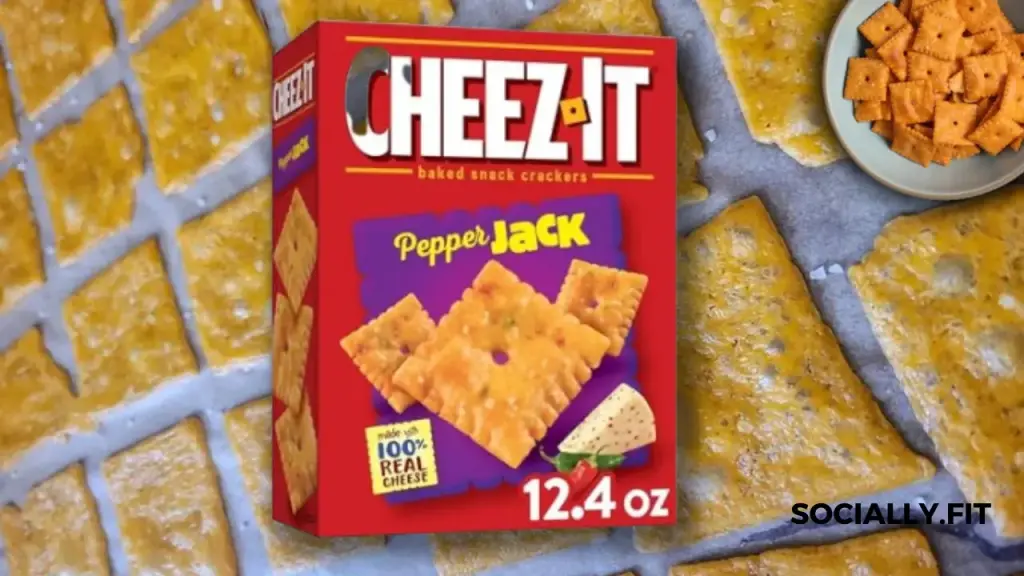
Making informed snack choices is essential for maintaining a balanced diet and supporting overall health and well-being. Here are some tips to help you choose snacks wisely:
1. Read Labels Carefully:
- Take the time to read the nutrition labels on snack packaging in order to understand the ingredients, serving sizes, and nutritional content per serving.
2. Focus on Nutrient Density:
- Opt for snacks that are rich in nutrients such as vitamins, minerals, fiber, and protein, while also being low in added sugars, unhealthy fats, and sodium.
3. Limit Processed Foods:
- Opt for whole, minimally processed snacks whenever possible, such as fruits, vegetables, nuts, seeds, and whole grains, to maximize nutritional value and minimize additives and preservatives.
4. Watch Portion Sizes:
- Be mindful of portion sizes when snacking to avoid overeating and consuming excess calories, especially with calorie-dense snacks like Cheez Its.
5. Balance Macronutrients:
- Opt for snacks that provide a balance of carbohydrates, fats, and proteins to help stabilize blood sugar levels. Additionally, these snacks promote satiety and provide sustained energy.
6. Consider Dietary Preferences and Restrictions:
- Take into account any dietary preferences or restrictions, such as vegetarian, vegan, gluten-free, or dairy-free, when choosing snacks to ensure they align with your needs and preferences.
7. Plan Ahead:
- Plan and prepare healthy snacks in advance to have nutritious options readily available when hunger strikes, reducing the temptation to reach for less healthy choices.
8. Stay Hydrated:
- Drink water throughout the day to stay hydrated and prevent thirst from being mistaken for hunger. Consequently, this can lead to mindless snacking on less healthy options.
9. Listen to Your Body:
- Pay attention to your body’s hunger and fullness cues, and choose snacks mindfully rather than out of habit or boredom.
10. Enjoy in Moderation:
- While it’s okay to indulge in your favorite snacks occasionally, aim for balance and moderation in your overall diet to support long-term health and well-being.
By following these tips for making informed snack choices, you can nourish your body with nutritious foods, maintain energy levels throughout the day, and support your overall health and wellness goals.
Are Cheez Its Healthy
Understanding Ingredient Labels for Informed Snacking
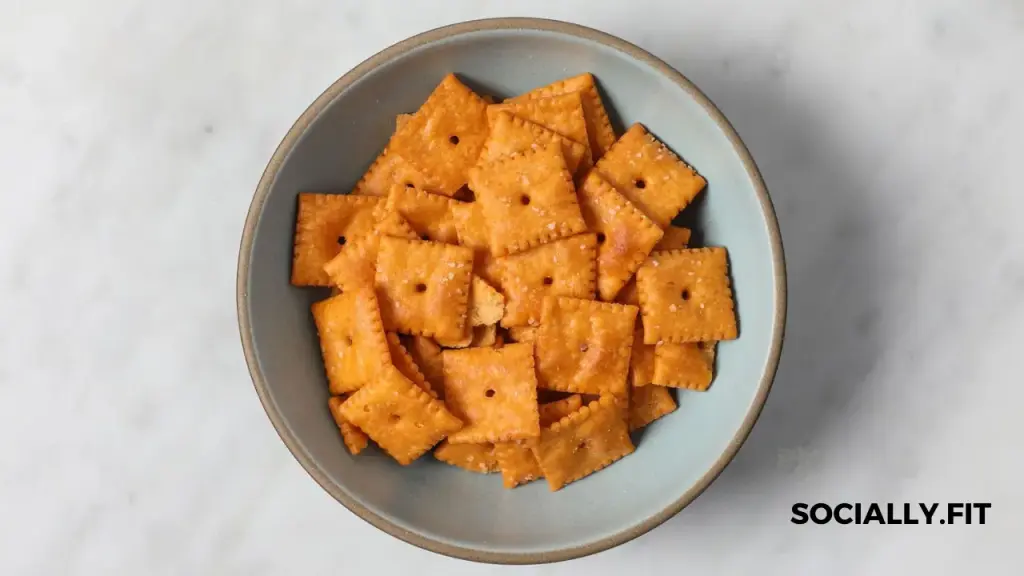
Reading and understanding ingredient labels is crucial for making informed snack choices. Here’s a guide to help you decipher ingredient labels effectively:
1. Start with the Serving Size:
- Pay attention to the serving size listed on the label. All the nutritional information provided is based on this serving size.
2. Check the Ingredient List:
- Scan the ingredient list to identify the components of the snack. Ingredients are listed in descending order by weight, so the first few ingredients make up the majority of the product.
3. Look for Whole Ingredients:
- Choose snacks with whole, recognizable ingredients like fruits, vegetables, nuts, seeds, whole grains, and lean proteins. Avoid products with long lists of unfamiliar or artificial ingredients.
4. Watch Out for Additives:
- Be cautious of additives such as artificial colors, flavors, preservatives, and sweeteners. Opt for snacks with minimal or no additives for a cleaner eating experience.
5. Mind the Sugar Content:
- Check the sugar content in the ingredients list. Be vigilant for hidden sugars under various names such as sucrose, high-fructose corn syrup, and dextrose. Opt for snacks with lower sugar content or naturally occurring sugars.
6. Consider Fat Sources:
- Assess the type of fats used in the snack. Favor snacks with healthy fats like nuts, seeds, and avocado, while minimizing trans fats and saturated fats.
7. Evaluate Sodium Levels:
- Be aware of the sodium content, especially in savory snacks like chips and crackers. High sodium intake can lead to health issues like high blood pressure, so opt for snacks with lower sodium levels.
8. Check for Allergens:
- If you have food allergies or intolerances, it’s crucial to carefully review the ingredient list. Common allergens like nuts, gluten, dairy, and soy. This helps you avoid potential adverse reactions and ensures your safety when consuming snacks or any food products.
9. Consider Nutritional Benefits:
- Look for snacks that offer nutritional benefits such as fiber, vitamins, minerals, and protein. Choose snacks that contribute to your daily nutrient intake and support your health goals.
10. Seek Transparency:
- Choose brands that prioritize transparency and provide clear, comprehensive ingredient labels. Additionally, look for certifications like organic, non-GMO, and fair trade for added assurance of quality and sustainability.
By understanding ingredient labels and making informed choices, you can select snacks that align with your dietary preferences. Additionally, these snacks can support your health and wellness goals and contribute to a balanced diet.
Are Cheez Its Healthy
Long-Term Health Implications of Snacking Habits
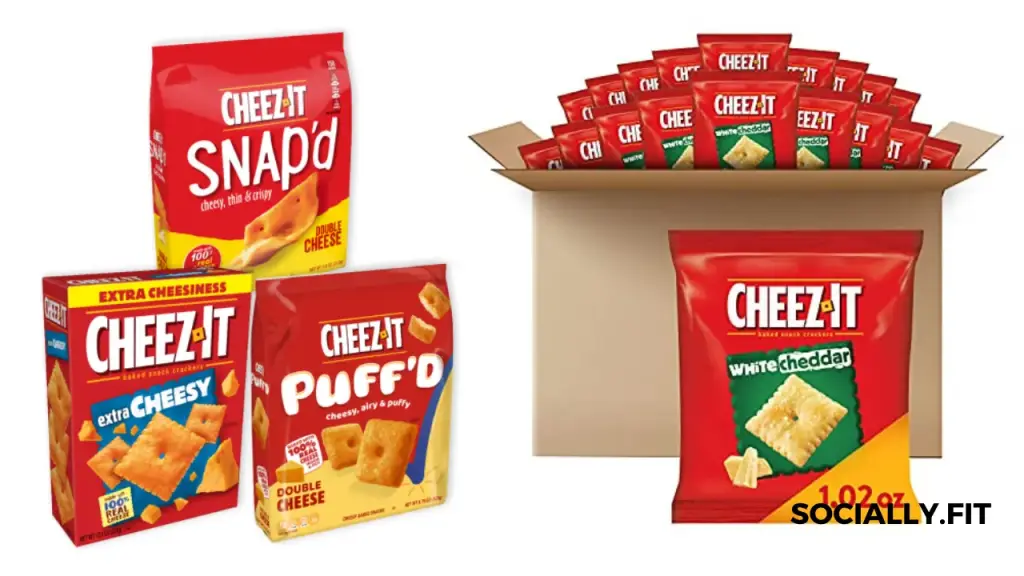
While snacking can be a convenient way to curb hunger between meals. It’s essential to consider the long-term health implications of your snacking habits. Here are some factors to keep in mind:
1. Weight Management:
- Regularly consuming high-calorie snacks can contribute to weight gain over time, especially if portion sizes are not controlled. This can increase the risk of obesity and related health issues such as diabetes, heart disease, and certain cancers.
2. Nutrient Intake:
- Snacks high in added sugars, unhealthy fats, and refined carbohydrates may provide empty calories and lack essential nutrients. Over-reliance on these snacks can lead to nutrient deficiencies and imbalances, impacting overall health and well-being.
3. Blood Sugar Control:
- Snacks with a high glycemic index, such as sugary snacks and refined grains, can cause rapid spikes. Over time, this can contribute to insulin resistance, metabolic syndrome, and type 2 diabetes.
4. Heart Health:
- Consuming snacks high in saturated fats, trans fats, and sodium can increase the risk of heart disease. This increases cholesterol levels, blood pressure, and promoting inflammation in the body. However, choosing heart-healthy snacks rich in unsaturated fats, fiber, and antioxidants can support cardiovascular health.
5. Digestive Health:
- Snacks low in fiber and high in processed ingredients may disrupt digestive health. This contribute to issues like constipation, bloating, and gastrointestinal discomfort. Including fiber-rich snacks like fruits, vegetables, and whole grains can promote digestive regularity and overall gut health.
6. Mental Well-being:
- The relationship between snacking habits and mental health is complex. While indulging in comfort foods can provide temporary pleasure and stress relief. Relying too heavily on unhealthy snacks may negatively impact mood, energy levels, and overall mental well-being in the long run.
7. Dental Health:
- Snacks high in sugars and starches can promote tooth decay and cavities. This happens when consumed frequently throughout the day without proper oral hygiene practices. Opting for snacks that are low in added sugars and acidic ingredients can help protect dental health.
8. Overall Lifestyle:
- Snacking habits are often intertwined with broader lifestyle factors such as stress, boredom, social situations, and environmental cues. Developing mindful eating habits, practicing portion control, and choosing nutrient-dense snacks. This can support a balanced and healthy lifestyle in the long term.
By considering the long-term health implications of your snacking habits and making informed choices. You can support your overall health and well-being and reduce the risk of chronic diseases associated with poor dietary habits.
Are Cheez Its Healthy
Conclusion: Are Cheez Its Truly Healthy?
In conclusion, while Cheez Its may be tasty and convenient, they are not the healthiest snack choice due to their high sodium and saturated fat content. However, enjoying Cheez Its in moderation as an occasional treat can fit into a balanced diet. For those looking to prioritize health, exploring healthier snack alternatives is recommended.
In summary, while Cheez Its may not be the epitome of healthfulness, they can still be enjoyed in moderation as part of a balanced diet. Understanding their nutritional content and considering healthier alternatives can help individuals make informed snack choices for optimal well-being.
FAQ
1. Are Cheez Its healthy?
Cheez Its are tasty but contain high levels of sodium and saturated fat, making them a less healthy snack option. Moderation is key.
2. What are some healthy Cheez Its alternatives?
Opt for whole grain crackers, veggie sticks with hummus, or air-popped popcorn as healthier alternatives to Cheez Its.
3. How can I make smarter snack choices?
Read labels, focus on nutrient density, and choose whole, minimally processed foods to make informed snack decisions.
4. What are the risks of excessive snacking?
Excessive snacking can lead to weight gain, nutrient deficiencies, and negative impacts on heart and digestive health.
5. Can snacking be part of a balanced diet?
Yes, when chosen wisely and in moderation, snacks can complement a balanced diet by providing essential nutrients and satisfying cravings.
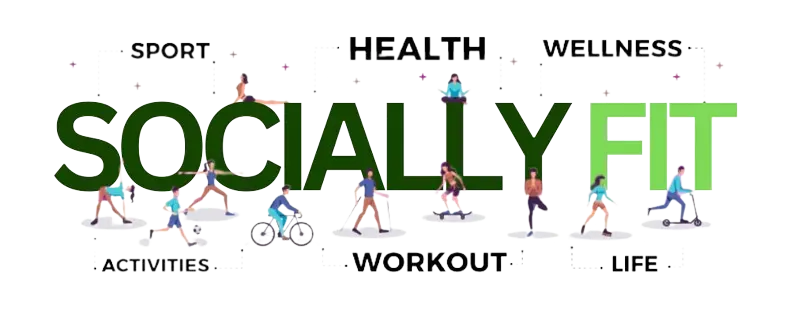

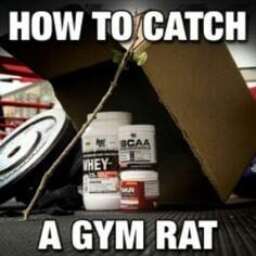




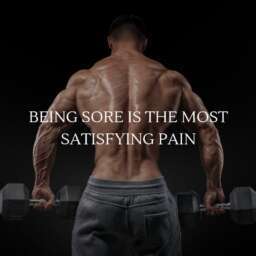
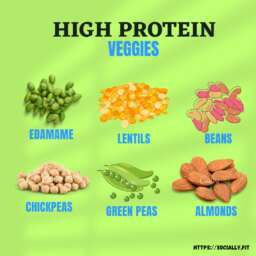
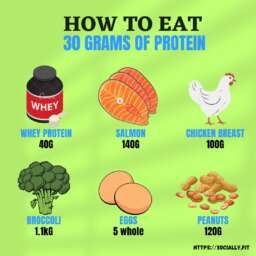
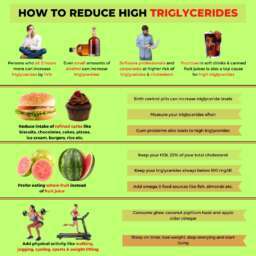
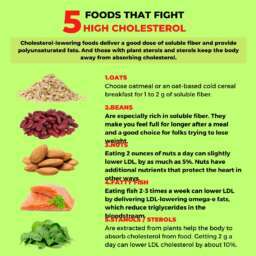
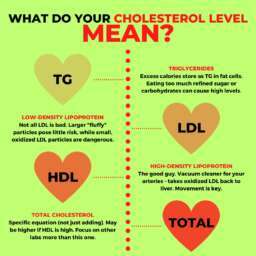

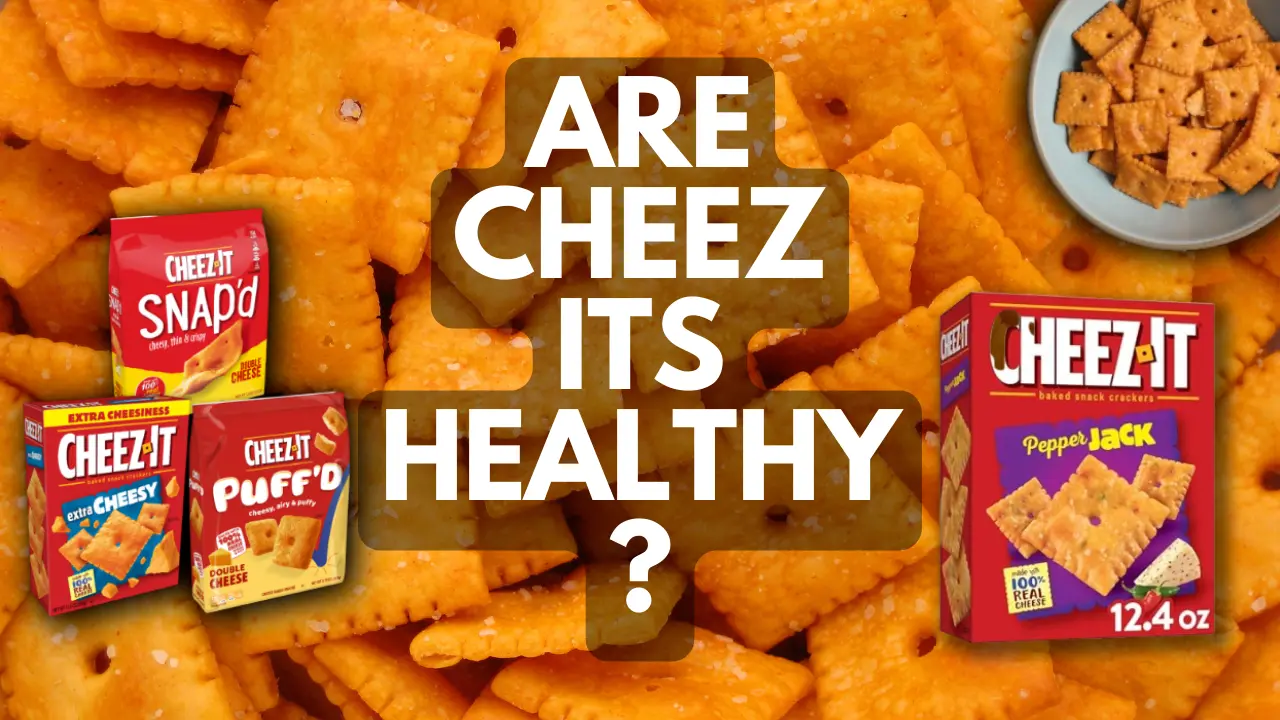
One thought on “Are Cheez Its Healthy?”